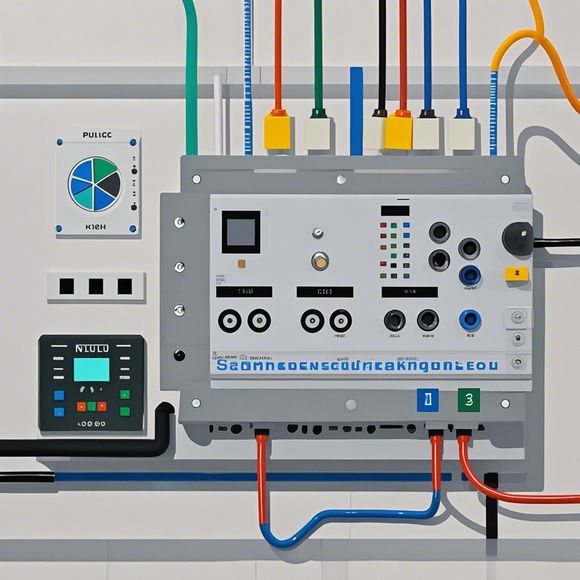The Ultimate Guide to PLC Control Systems: Everything You Need to Know for Your Business
In this digital age, businesses have evolved to incorporate cutting-edge technology to stay ahead in the competitive market. One of the most significant technological advancements that are revolutionizing industries is the use of Programmable Logic Controllers (PLCs) in manufacturing, industrial, automation, and other industrial processes. As a business owner or manager, you need to understand how these systems work, their benefits, and how to effectively use them to streamline your operations. In this guide, we will delve into all the essential aspects of PLCs to help you navigate through the complex world of programmable logic devices.

1. What is a PLC?
A Programmable Logic Controller (PLC) is a computer system designed to control and monitor industrial processes. It uses a combination of hardware and software components to perform specific tasks such as sequencing, controlling, and monitoring various types of equipment. These controllers are widely used because they offer several advantages over traditional analog controllers. For instance, they can be easily programmed with different logic functions and can be connected to multiple sensors and actuators to control the flow of raw materials or products.
2. The Benefits of PLCs
There are several benefits of using PLCs in your industrial operations. Firstly, they are highly reliable, durable, and can withstand harsh environments. Secondly, they can save time and effort by automating routine tasks, reducing errors, and minimizing downtime. Thirdly, PLCs can enhance efficiency by optimizing production processes and improving product quality. Finally, they can provide real-time data analysis and reporting, which helps in decision-making and process improvement.
3. How to Choose the Right PLC for Your Needs
When selecting a PLC for your business, it's essential to consider several factors such as the complexity of the processes being controlled, the number of inputs and outputs required, the processing power available, and the programming language used. Some popular PLC manufacturers include Siemens, Honeywell, and Allen-Bradley.

4. Programming the PLC
Once the right PLC has been selected, it's crucial to program it correctly to ensure optimal performance. Programming involves writing code that controls the actions of the PLC based on predefined rules. There are several programming languages available such as Ladder Logic, Function Block Diagrams, and Structured Text. It's recommended that you choose a language that is easy to understand and learn, as programming can become complex if not done correctly.
5. Connecting PLCs with Other Devices
To make the most out of PLCs, it's essential to connect them with other devices such as sensors, valves, motors, and computers. This enables the PLC to receive information from these devices and take action accordingly. Some popular connections include Ethernet, PROFINET, and PROFIBUS.
6. Troubleshooting Common Issues
While PLCs are reliable devices, they may encounter issues during operation. To troubleshoot common problems, it's essential to understand the basic principles of electrical engineering and the workings of the PLC. Some common issues include incorrect connections, faulty sensors or actuators, and improper coding.

7. Maintenance and Updates
Maintaining and updating PLCs is crucial to ensure their longevity and effectiveness. This involves regular checks for any signs of wear and tear, updating software and firmware, and resetting the controller periodically. It's also essential to consult with a professional engineer for any technical assistance needed.
In conclusion, using PLCs in your business has numerous benefits, including increased efficiency, improved safety, and cost savings. However, it's essential to choose the right PLC, program it correctly, connect it with other devices, troubleshoot common issues, and maintain and update it regularly to ensure optimal performance. With these tips in mind, you can take full advantage of the power of PLCs in your industrial operations.
Content expansion reading:
Articles related to the knowledge points of this article:
The cost of a PLC Controller: A Comprehensive Analysis
PLC Programming for Automation Control in the Manufacturing Industry
How to Use a PLC Controller for Your Business
Plumbers Rule! The Role of PLC Controllers in the World of Waterworks
The Role of Programmable Logic Controllers (PLCs) in Foreign Trade Operations
PLC Controllers: A Comprehensive Guide to Understanding Their Prices